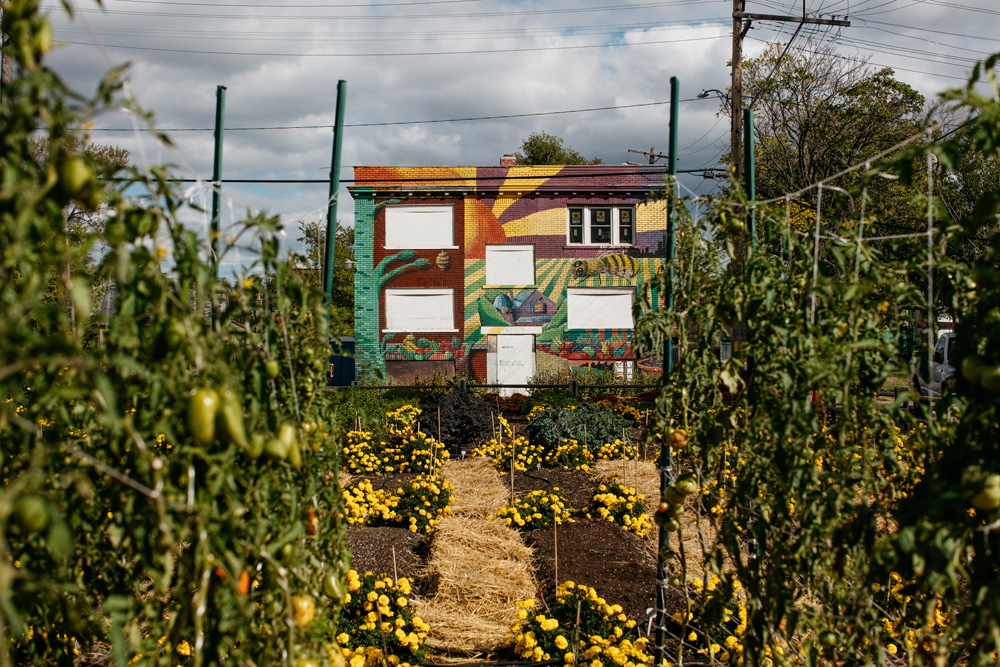Amid weed-filled lots and crumbling facades, the sheer amount of land available in Detroit to be turned into community space, housing, small businesses, and even urban farms is unprecedented in a modern American city.
Against the backdrop of a so-called Detroit renaissance that’s attracting more development and activity, mostly in specific neighborhoods such as Midtown, scores of artists, activists, nonprofits, and urban farmers are finding creative ways to tap into the land’s potential.
They’re activating vacant lots, abandoned buildings, and foreclosed homes, working in the wake of dedicated community activists who have long pushed to transform these spaces to benefit their neighborhoods.
A new generation of farmers have begun to reclaim urban space at a much faster pace. One estimate puts total production last year at 400,000 pounds of produce in the city alone, and according to Gary Wozniak, president of the economic development agency RecoveryPark, that’s just scratching the surface of the potential market.
Within a 300-mile radius of downtown Detroit, there are 49 million people who spend $17 billion annually on fresh produce. Only 18 percent of that is locally sourced.
Detroit faces a thicket of challenges right now, but many see the potential of this vacant land to catalyze Detroit’s future growth.

